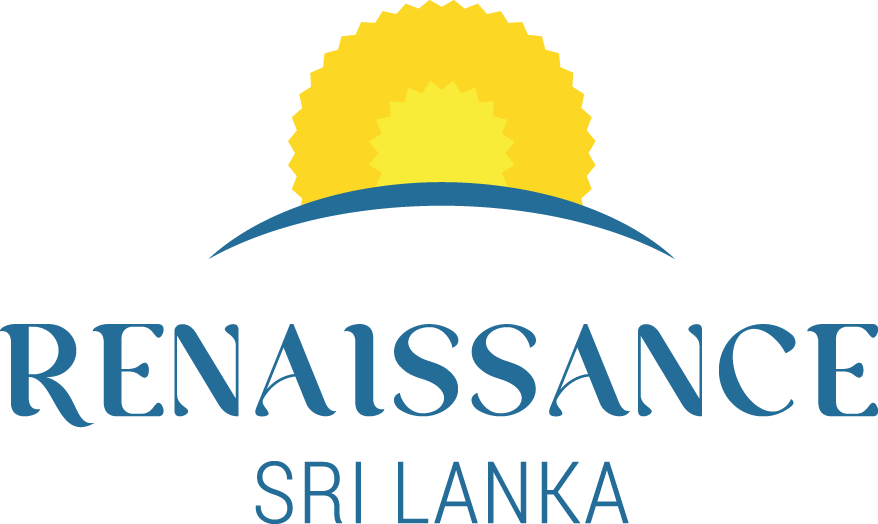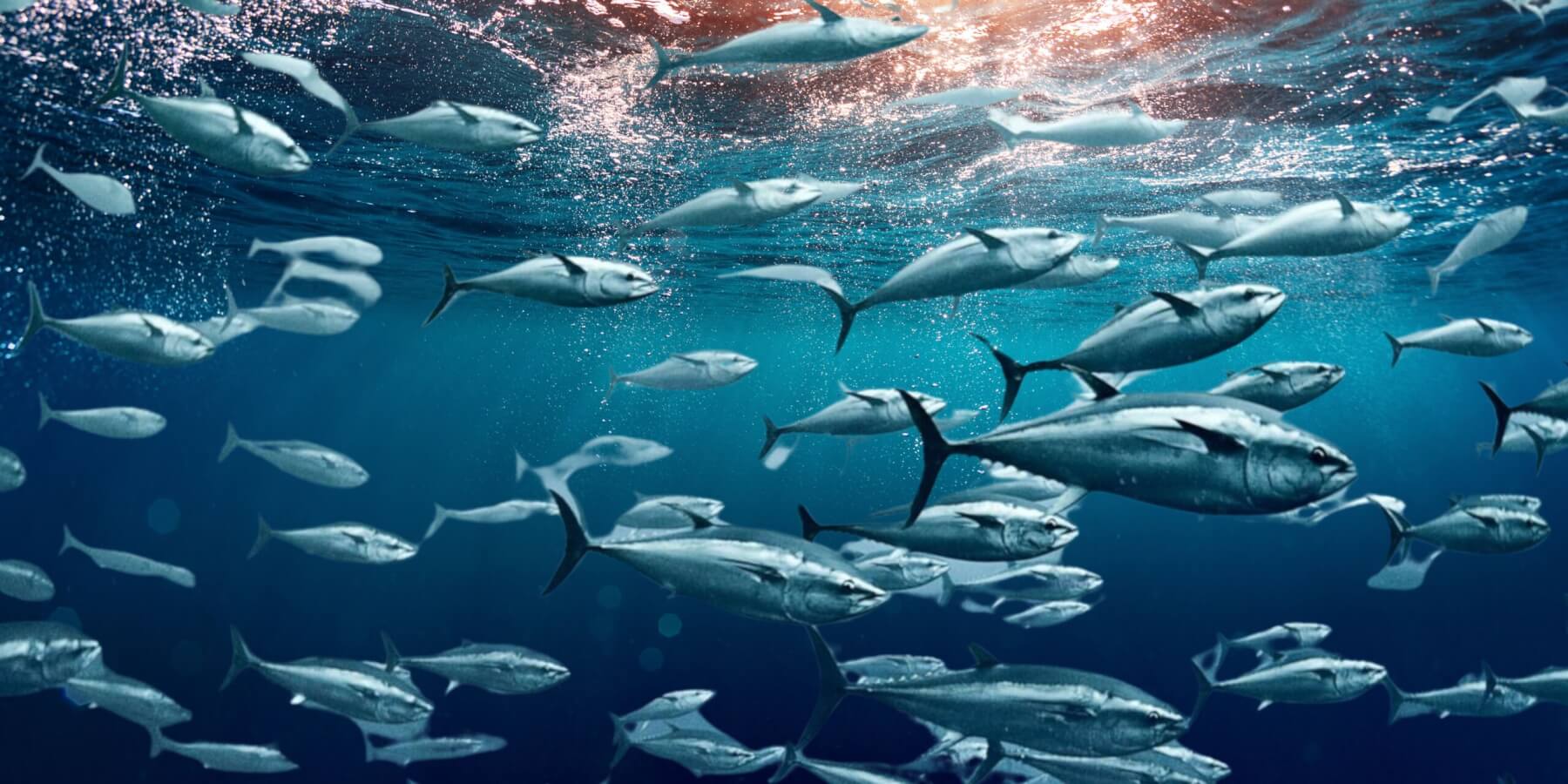Rebuilding Hope for the Modara Fishing Community: A Story of Resilience and Collaboration
On August 9th, 2024, a significant reunion took place that encapsulated the power of community and collaboration. Mrs. Ashinsa Bopearachchi, the Chairperson of Renaissance Sri Lanka, met with Father Theshan Priyadarshana and Mr. Muttaiya Vijanadran, the Secretary of the United Congress of Fishermen and Fishermen Workers’ Union (Fisheries Trade Union), to reflect on their shared efforts in 2022.
In 2022, Renaissance Sri Lanka had donated school supplies to 156 children of the Modara fishing community, a gesture of support that left an indelible mark on the hearts of those families. The reunion was more than just a nostalgic remembrance; it was a heartfelt reaffirmation of the challenges faced by the Modara fishing community and the pressing need for ongoing assistance.

Mrs. Ashinsa Bopearachchi is with Father Theshan and Mr. Vijanadran © Renaissance Sri Lanka
A Community Under Strain
The Modara fishing community, nestled in the northern part of Colombo, has long been an iconic part of Sri Lanka’s coastal heritage. Known for its rich history, Modara has provided the city of Colombo with fresh fish for centuries. However, this vibrant community now faces unprecedented economic and environmental challenges that threaten its livelihood.
Father Theshan, who hails from a fisherman’s family himself, painted a vivid picture of the struggles faced by the fishermen. He explained that the economic situation has been deteriorating, and families are finding it increasingly difficult to make ends meet. The fishermen have struggled to acquire necessities like petrol and kerosene, essential for powering their boats, and this has severely impacted their ability to work. Despite these hardships, the community maintains a close relationship with the local church, finding solace and strength in their faith.

Father Teshan during the interview © Renaissance Sri Lanka
« Life has become exceedingly hard for these families, » Father Theshan noted solemnly. « The X-Press Pearl ship disaster in 2021 only compounded the issues they were already facing, forcing the fishermen to venture into deeper, more dangerous waters to catch fish. »

Modara Fish Market © Renaissance Sri Lanka
The X-Press Pearl Disaster: A Devastating Blow
The X-press Pearl ship disaster, which occurred off the coast of Sri Lanka, was a catastrophic incident that had far-reaching consequences for coastal communities, especially the Modara fishing village. The toxic chemicals released from the ship, coupled with the massive pollution caused by microplastics, wreaked havoc on the marine ecosystem. Fish that once populated the waters off the coast of Modara either perished or migrated to safer areas, making fishing more treacherous and less profitable.

Mr Vijanadran during the interview © Renaissance Sri Lanka
Mr. Vijanadran, affectionately known as « Vije Aiya » by the locals, is the President of the St. Andrews fisheries Organisation in Modara. He elaborated on the devastating effects of the disaster on their livelihood. Modara, one of Sri Lanka’s oldest fishing villages, has been a hub of fishing activity for generations, supplying fresh seafood to Colombo residents. The village’s unique geographical location, where the Kelani River meets the sea, had always ensured a rich and steady harvest of fish. But that has changed dramatically in recent years.

Mr. Vijanadran’s residence © Renaissance Sri Lanka
“The sea is no longer as abundant as it used to be,” Mr. Vijanadran lamented. “Due to the pollution from the X-Press Pearl disaster, fishermen have to venture farther out into the ocean, which is not only dangerous but also unsustainable for many of the small-scale fishermen who rely on one-day fishing trips.”
The pollution caused by the disaster has not only affected the quantity of fish but also the quality. Microplastics have infiltrated the food chain, and this contamination poses serious health risks to both the fishermen and consumers. Mr. Vijanadran voiced concerns about the long-term impact of microplastics on marine life and human health, noting that cancer rates could rise if immediate action is not taken.
Economic and Environmental Struggles
Beyond the immediate environmental impacts, the economic fallout from the disaster has been profound. Many fishermen in Modara engage in small-scale fishing, which typically involves one-day trips to catch enough fish to sell in the local markets. However, the pollution has drastically reduced fish stocks, and many fishermen are now forced to invest in larger boats and more powerful engines to venture into the deep sea, chasing tuna, sharks, and other large fish species. This increased financial burden has pushed many families further into poverty.
Compounding the situation is the shrinking size of the village itself. According to Mr. Vijanadran, urban development has encroached upon the traditional lands of the Modara fishing community. The village, once a thriving coastal area, now occupies only about eight acres of land, including the beach and the residential areas. “Governments have come and gone, but none of them have offered any housing schemes or meaningful support to our community,” he said. “We are being squeezed out, both by the sea and by the city.”

Repairing damaged fishing nets © Renaissance Sri Lanka
The ongoing expansion of the Colombo Harbour and the controversial Port City project have also created significant obstacles for the fishermen. Restricted fishing zones and increased ship traffic have limited the areas in which they can fish, further exacerbating the challenges they face.
The X-Press Pearl Compensation: A Partial Solution?
In the aftermath of the X-press Pearl disaster, the government provided a one-time compensation of LKR 5,000 to the affected fishermen, with additional payments later made to those who possessed a « Samudri » license. The X-Press Pearl company itself offered compensation ranging from LKR 17,000 to LKR 55,000, which was disbursed in five installments over three years.
While this compensation helped in the short term, it was far from sufficient to address the long-term challenges faced by the community. “The compensation helped, but it wasn’t enough,” explained Mr. Vijanadran. “We need a more comprehensive solution that includes rehabilitation, environmental restoration, and sustainable support for the fishing industry.”
He also pointed out the need for proper legal action by the government. “If the government had taken the right legal steps, Sri Lanka could have secured a much larger compensation package from the company responsible for the disaster,” he said. “That money could have gone a long way in helping not just the fishing community, but also in reducing our national debt.”
Rising Social Issues: Addiction and Unemployment
The economic hardships and environmental degradation have also led to a rise in social issues within the community. Unemployment is on the rise, and many young people in the village are losing hope for a better future. Drug addiction has become a growing problem, with many young fishermen turning to substances to escape the harsh realities of their lives.
Father Theshan expressed deep concern over this trend, calling for immediate intervention in the form of rehabilitation programs and youth engagement initiatives. “We need to give the youth of this community a reason to believe in a better tomorrow,” he said. “Without proper political and social support, we are at risk of losing an entire generation to addiction and despair.”

The Modara beach and fishing boats © Renaissance Sri Lanka
The Need for Continued Support
As the conversation with Mrs. Bopearachchi, Father Theshan, and Mr. Vijanadran unfolded, it became clear that while the 2022 school supply donation was a meaningful gesture, the Modara fishing community requires sustained and comprehensive support to overcome the myriad challenges it faces.
Father Theshan highlighted the community’s immediate needs, which include fishing equipment, housing, and food security. He also emphasized the importance of rehabilitation programs for those struggling with addiction. “The community has shown incredible resilience, but they cannot do it alone,” he said. “We need to work together to provide them with the tools they need to rebuild their lives.”
Mrs. Bopearachchi reaffirmed Renaissance Sri Lanka’s commitment to the Modara fishing community. “Our organization will continue to stand by this community,” she said. “We recognize the depth of their struggles, and we are determined to work with local leaders to find sustainable solutions.”
A Call to Action
The story of the Modara fishing community is one of resilience, but also one of urgent need. The challenges they face, from environmental degradation to economic hardship and social decay, are daunting. But with the right support, they can rebuild their lives and continue their proud tradition of providing for their families and their city.
The reunion between Renaissance Sri Lanka and the leaders of the Modara fishing community serves as a powerful reminder that real change can only happen through collaboration. As Father Theshan aptly put it, “We are stronger when we work together.” The future of the Modara fishing community may be uncertain, but with organizations like Renaissance Sri Lanka lending their support, there is hope on the horizon.
Reference
Interview of Father Theshan and Vijanadran by Ashinsa Bopearachchi on August 9th, 2024, in Modara, Colombo Sri Lanka.




